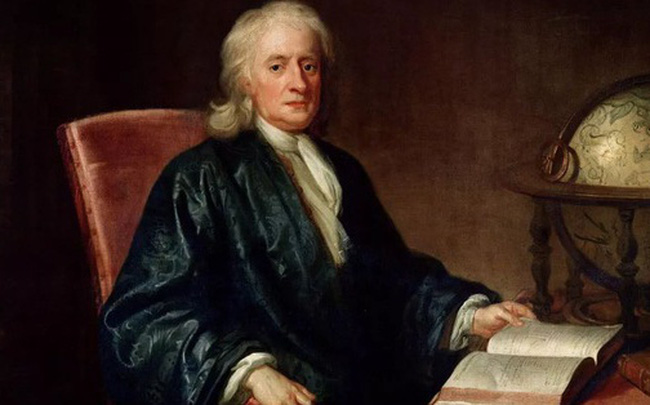365 years ago, did the scientist Newton return to his hometown to avoid the epidemic and what great achievements did science make?
In human history, there have been many dangerous viruses such as Nipah, Hendra, Ebola, Marburg, etc. Among them, Ebola virus can cause 25% to 90% of infected people to die. 50%, this is a very high rate. Although the death rate due to corona virus is not so high, the spread rate of this virus is very fast and poses a great threat to human health.
Currently, most of the countries in the world are calling people in isolation at home, limiting going out as one of the measures to prevent the spread of corona.

Remarkably, 365 years ago, a similarly famous incident occurred in the spring of 1665. A terrible epidemic broke out in London, mice transmitted germs to humans and caused strange diseases. called the plague. The disease caused the population of the London area to suddenly decrease by one tenth in less than three months.
The danger of the disease has caused many UK universities to close. At the time, the University of Cambridge announced it was closed to prevent infection, all teachers and students returned home and student Isaac Newton returned to his motherland in Woolsthorpe (England).
It can be said that, in Newton's life, the most mysterious and interesting thing happened between July 1665 and the end of 1666. During this time, he carried out landmark research. in some areas and these findings became the backbone of his entire research achievements over half a century later.
Fifty years later, looking back on this period of time, he said: " All this happened during the two-year epidemic of 1665-1966. During that time, I was at the golden age of my career. research and focus on mathematics, philosophy more than any time after that ".
Of course, this could also be considered a natural result of Newton's relentless efforts. Woolthorpe's relaxed environment allowed him more freedom to pursue research. The point is clear that during this period, Newton laid the foundation for his future research, even though some of the works were not published until 30 years later.
It was during this time of avoiding the epidemic that he focused and produced remarkable results in three areas including Mathematics - developing binomial theorem, calculus; Physics - the laws of universal gravitation and Optics - disperse light.
After the epidemic ended, Newton returned to Cambridge in 1667 and his career began to flourish.
In fact, at the time of returning to school, Isaac Newton was just a graduate student, had never published research results and had no reputation. However, what he discovered and researched during his time at Woolsthorpe was enough to make him one of the giants of scientific thought.
The next time, in 1668, he received a master's degree and was elected a senior researcher. In 1669, Professor of Mathematics Isaac Barrow resigned and Newton was appointed as a replacement, starting his brilliant research career .
Until 1689, Newton remained at the University of Cambridge, working hard on research, bringing achievements to many fields and they all have a strong influence today.
You should read it
- ★ How did the world's most powerful supercomputer help science fight the Covid-19 epidemic?
- ★ Why hasn't AI helped so much in the Covid-19 pandemic?
- ★ More than 540 studies, 80 clinical trials and 200 viral genomes: The scientific system is working at full capacity in the Covid-19 epidemic.
- ★ The US FDA approved the N95 respirator technology, which can be reused 20 times in the Covid-19 epidemic
- ★ COVID-19 Portable full body disinfection chamber appears in Hanoi